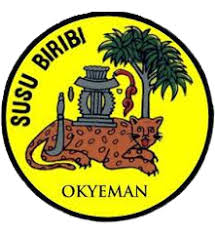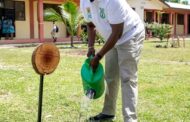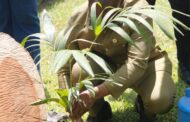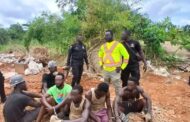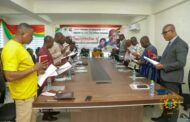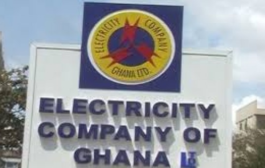Sagyemanse, Eastern Region – June 2 –
The Concerned Youth of Akyem Sagyemanse have issued a firm and urgent warning against illegal mining activities threatening the integrity of the Atiwa Forest Reserve, one of Ghana’s most ecologically significant and internationally recognized forest zones.
At a community gathering in Sagyemanse, youth leaders, traditional authorities, farmers, and environmental advocates jointly expressed alarm over attempts by an individual, identified as Prince Kegya, to secure over 800 acres of land within the protected forest for mining. Kegya, said to be politically connected and allegedly operating with supposed government and traditional approval, has been found to have no valid license, according to checks at the Minerals Commission.
“We were advised by the Regional Office of the Minerals Commission to arrest him if he is found operating in the forest,” a youth spokesperson revealed.
Sagyemanse, which lies at the gateway to the Atiwa Forest, has vowed to resist all efforts to grant access to mining operators. Residents insist the forest’s value far exceeds any potential mining revenue, citing irreversible damage to water sources, biodiversity, and the climate.
The Atiwa Range Forest Reserve, protected since 1926, serves as the source of three major rivers—Birim, Ayensu, and Densu—supporting over five million people. It is home to endangered species such as the white-naped mangabey and the Afia Birago puddle frog, over 1,100 plant species, and functions as a vital carbon sink.
It is also designated as a Key Biodiversity Area (KBA), Important Bird Area (IBA), and part of the Alliance for Zero Extinction (AZE) sites globally.
The youth outlined serious implications of mining within Atiwa:
Water contamination by mercury and cyanide affecting millions.
Destruction of livelihoods for farmers and healers.
Health crises due to toxic exposure and pollution.
Displacement of communities like Osino, Sagyemanse, and Bunso.
Legal violations of Ghana’s Constitution and global environmental agreements.
Accelerated climate change due to deforestation and CO₂ release.
Global effects were also emphasized, including species extinction and threats to international food and water security.
The group presented a six-point demand to the Government of Ghana and relevant authorities:
- Immediate cessation of all mining activities in Atiwa.
- Declaration of Atiwa as a National Park.
- Inclusive consultations on forest-related decisions.
- Investment in eco-tourism, research, and green jobs.
- Enforcement of environmental laws.
- Prevention of potential unrest through timely intervention.
The youth pledged continuous resistance through legal and civic actions and extended their appeal globally, urging international conservationists, governments, and civil societies to help protect the forest permanently.
“Atiwa is not just Ghana’s; it is the world’s,” the statement concluded.
The communiqué was signed by the Concerned Residents of Akyem Abuakwa and endorsed by the Okyeman State.
Source:Mybrytfmonline.com/Nana Kwasi Asare



